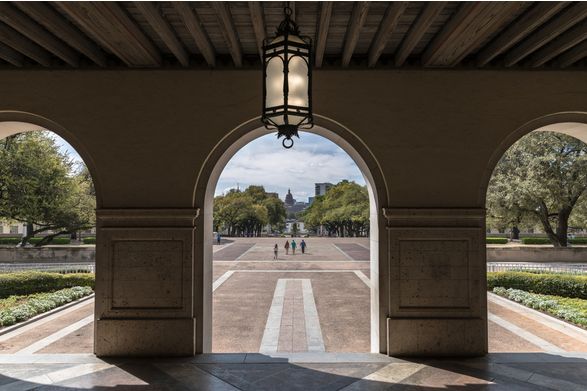At the University of Texas-Austin, students who feel offended by unpopular political opinions or politically incorrect jokes can report their fellow students to college authorities.
In some cases, the offending student may be forced to attend a residence hall or floor meeting to discuss the allegedly-biased expression, after which the “community” will decide “appropriate steps that need to be taken" to remedy the situation. In other cases, students may be subject to more formal disciplinary action.
According to Speech First, a non-profit membership organization that supports free expression on campus, UT-Austin has investigated more than 100 reports of “expressions of bias” since September 2017 (including posters, fliers, social media posts, whiteboard messages, verbal comments, and classroom discussions).
UT-Austin is among the hundreds of colleges and universities that have assembled Orwellian “bias response teams” to address and discourage students and faculty from expressing any view that might offend some member of the college community. According to the Foundation for Individual Rights in Education (FIRE), at least 232 public and private American colleges and universities publicly maintained bias response programs during the course of 2016.
Robby Soave reports that a bias response team at the University of Oregon investigated as “sexist” a sign that encouraged students to clean up after themselves. Members of the team also responded to an anonymous complaint that the student newspaper didn’t feature enough transgender writers by meeting with the editorial board and encouraging greater diversity.
At Colby College, in Maine, one student reported another for using the term “on the other hand” (which is, apparently, offensive to people with only one hand). Another reported fellow students for hosting a Hawaiian-themed luau party.
At the University of Michigan, a student reported a phallic snow sculpture. Although Michigan's bias response team was unable to determine the identity of the sculptor, it offered counseling to students who found the sculpture offensive.
Students are not the only people subject to the vast investigatory web of bias response teams. Several years ago, the University of Northern Colorado investigated a writing instructor who asked students to consider opposing viewpoints by having a discussion about a controversial topic of their choice. A student offended by the conversation reported the professor, who was summoned to multiple meetings to justify the assignment. The university warned him that further class discussion of controversial topics could result in investigation by federal authorities. Ultimately, the university chose not to renew his teaching contract.
Supporters of bias response teams claim that they promote civility and campus safety. In practice, they punish politically unpopular viewpoints and suppress free speech. By encouraging students to formally report on one another and on their professors whenever they are “offended,” colleges have created a climate of distrust that intimidates students from expressing their opinions and denies them the opportunity to learn from and challenge others who may hold opinions different from their own.
IWF is pleased to join with the American Council of Trustees and Alumni to support Speech First’s lawsuit, Speech First v. Fenves, challenging the constitutionality of speech policies at the University of Texas-Austin.
Read IWF’s brief in support of Speech First HERE.


